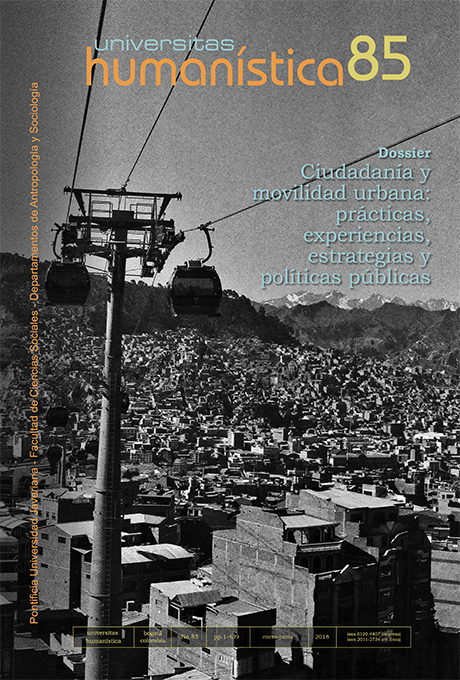Abstract
Based on the cultural perspective of public problems approach (Gusfield, 2014), we explore processes of constructing of urban mobility policies in Bogotá and Belo Horizonte since 1990. Here we understand mobility as both social phenomenon and object of public action through content analysis of public policy instruments, both territorial and sectoral, we identified transformations in the category of mobility as well as the construction of new forms of urban identities where movement plays a central role citizenry. For the period studied, we find that transformations in planning culture, at the local level, gave greater importance to the category of mobility in the two cities. We also identified a growing interest in new urban agents such as pedestrians and cyclists, among others, expressed in the use of four discursive mechanisms used to describe, regulate, control, and construct these mobile identities: classification, omission, stigmatization, and metonymy.

This journal provides immediate open access to its content on the principle that making research freely available to the public, encourages greater global exchange of knowledge.
The journal Universitas Humanística is registered under a Creative Commons Attribution 4.0 International Public License. Thus, this work may be reproduced, distributed, and publicly shared in digital format, as long as the names of the authors and Pontificia Universidad Javeriana are acknowledged. Others are allowed to quote, adapt, transform, auto-archive, republish, and create based on this material, for any purpose (even commercial ones), provided the authorship is duly acknowledged, a link to the original work is provided, and it is specified if changes have been made. Pontificia Universidad Javeriana does not hold the rights of published works and the authors are solely responsible for the contents of their works; they keep the moral, intellectual, privacy, and publicity rights.
Approving the intervention of the work (review, copy-editing, translation, layout) and the following outreach, are granted through an use license and not through an assignment of rights. This means the journal and Pontificia Universidad Javeriana cannot be held responsible for any ethical malpractice by the authors. As a consequence of the protection granted by the use license, the journal is not required to publish recantations or modify information already published, unless the errata stems from the editorial management process. Publishing contents in this journal does not generate royalties for contributors.


